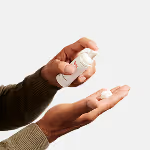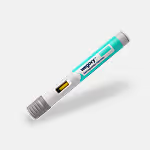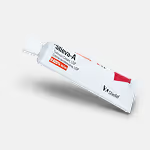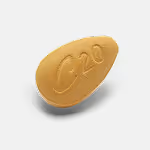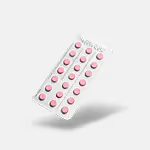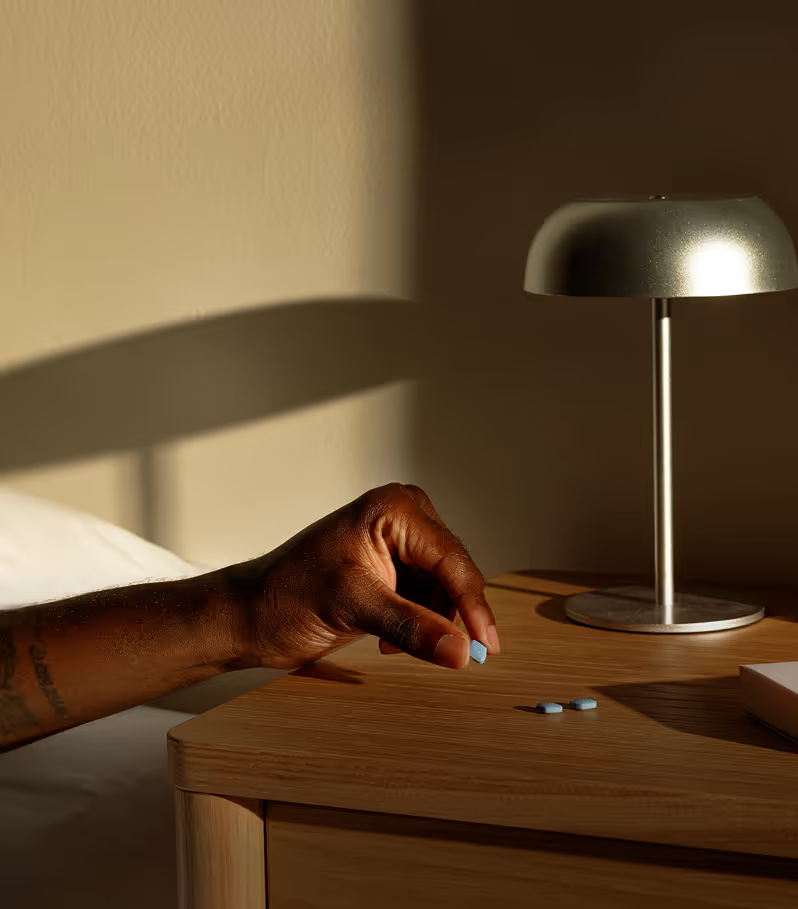Download the Felix App
Earn reward, visit our shop and get exclusive offers on the app
Download nowEarn reward, visit our shop and get exclusive offers on the app
Download nowPut your health first in 2026 with free visits on all categories, and $200 off longevity testing.
Download nowPut your health first in 2026 with free visits on all categories, and $200 off longevity testing.
Download now
AI-generated summaries may be inaccurate and do not constitute medical advice. Third-party AI tools are not under Felix's control, and your use of them is at your own risk.
Erectile dysfunction is more common than you might think, but because it's such a sensitive subject many people dealing with ED suffer privately. We'll demystify the topic to make it a bit easier to talk about — with a healthcare practitioner, a partner, or even yourself.
While speaking to a healthcare practitioner is the best course of action when treating ED, we've put together an overview of the causes, symptoms, and available treatments to help you better understand this common issue. Read on so you can ask informed questions when seeking treatment, and you may even feel more comfortable bringing it up with your partner if you want them to better understand the issue.
ED refers to the persistent, recurrent inability to get an erection firm enough, or to maintain it for long enough, for satisfying sexual activity. This covers a range of different symptoms. For example, one person may be able to get hard initially but are unable to keep an erection firm for long enough to climax. Another person may find they have an inability to achieve an erection altogether. Both of these cases would qualify as ED, even though the experience in each case is a bit different.
This variation in erectile dysfunction symptoms makes it all the more important to talk to a doctor, since they may recommend different treatments depending on the specifics of your case.
An erection occurs as the result of a chain of chemical reactions in the body that result from sexual stimulation of some kind. When sexual stimulation occurs, penile nerve endings and the endothelium — the lining of the blood vessels — release nitric oxide. This stimulates the production of cyclic GMP, which in turn relaxes the penile smooth muscle tissue. With this tissue relaxed, increased blood is able to flow into the penis, resulting in an erection.
There are many potential factors that can contribute to ED. These are things most of us are exposed to at one time or another. Common causes include:
Psychological erectile dysfunction can be caused by factors such as depression, performance anxiety, relationship issues with your partner that may need to be addressed, or issues resulting from a high amount of porn consumption that can make IRL arousal more difficult to achieve.
We all know the number that stress can do on our bodies, and it turns out it can cause problems with sexual function as well. The physiological responses that take place in the body in response to stress can interrupt the process that needs to take place in order to get an erection.
While there's no superfruit that will magically give you an erection, and no single culprit when it comes to foods to avoid if you want to treat your ED, a balanced diet can help prevent some of the leading erectile dysfunction causes. Since heart disease, high blood pressure and high cholesterol have been linked to ED, a diet rich in fruits and veggies, protein, and healthy fat, as well as avoiding sugar and processed foods can help mitigate these risk factors.
Diabetes has also been linked to higher incidence of ED, with one study finding that the incidence of ED was 50% across age groups with men with diabetes and high blood pressure.
We're not here to tell you you shouldn't enjoy that extra nightcap before heading to the bedroom, but if you're dealing with erectile dysfunction, it is possible that your sexual performance is being impacted by alcohol.
Alcohol can impact the physiological process that leads to an erection in the short term, but ED has also been linked with long-term alcohol consumption, which is another good reason to avoid making excessive alcohol consumption a regular habit.
Just as a poor diet can lead to narrowing of the arteries that makes blood flow more difficult, smoking can have a similar effect over time. Smoking can cause plaque to build up in the arteries over time, which is definitely not conducive to blood being able to easily flow to form an erection.
Certain prescription drugs and recreational drugs can cause ED in some cases. If you're taking a prescription drug that is contributing to ED, it's important to discuss the issue with a healthcare practitioner so that they can come up with the best ED treatment that won't interfere with any other health conditions you're being treated for.
Certain antidepressants, chemotherapy drugs, and blood pressure drugs can impact sexual function. A range of drugs that reduce testosterone, such as antiandrogens and certain heart drugs may also be contributors.
Recreational drugs that can contribute to ED include amphetamines, barbiturates, cocaine, marijuana, and heroin.
Getting a good night's rest may also help alleviate ED, since sleep deprivation can contribute to a reduction in testosterone. One University of Chicago Medical Center study found that one week of sleeping only five hours per night resulted in a 10-15% reduction in testosterone levels, the equivalent of aging 10-15 years. While the impact of this reduction on erections wasn’t directly studied, it is possible that a decrease in testosterone may impact on ED.
Age is a risk factor for erectile dysfunction, but this doesn't mean young men don't frequently deal with ED as well. A 2013 study from the Journal of Sexual Medicine found that 26% of men under the age of 40 are affected by erectile dysfunction. However, even if you are otherwise healthy, the chance that you will experience symptoms of ED increases each decade.
More common in older men, cancers such as bladder, colorectal, or prostate cancer can cause ED. In some cases, the treatments for these cancers all cause ED.
Your healthcare practitioner will ask you about your symptoms and medical history. They may also inquire about some of the psychological factors that can be at the root of ED, such as stress and anxiety.
Having a recent blood pressure test is also important, because it will impact whether or not your doctor can safely prescribe PDE5 inhibitors, the most common treatment for ED.
In rarer cases, your health care practitioner may recommend additional tests, such as an ultrasound or a blood test, to find out what may be contributing to your ED symptoms before prescribing a treatment.
The common symptoms of ED are:
Other symptoms that may be related to ED include:
If you're experiencing any of these signs of ED, especially if they are persistent and have lasted for over three months, talking to a healthcare practitioner can help you determine what treatment is best for you.
The good news is that erectile dysfunction is actually pretty easy to treat effectively in most cases, and after discussing your situation with a healthcare practitioner you may be on your way with an effective treatment in no time.
Since there are a range of erectile dysfunction causes, a doctor may recommend different treatments depending on the underlying cause. Let's take a look at some of the main treatments used to treat erectile dysfunction:
Oral medications are frequently prescribed as treatment for erectile dysfunction.
These treatments can work by slowing down the rate at which the body breaks down cGMP by the enzyme PDE, or phosphodiesterase. By slowing down the breakdown of cGMP, the smooth muscle can remain relaxed longer, allowing an erection to be maintained as long as the drug is in your system. A healthcare practitioner can help you determine what options work best for you.
A common ED misconception is that taking an ED medication can give you an instant erection. Given how these drugs work, sexual stimulation is still required in order for the blood flow to the penis to occur that is required for an erection.
Another common misconception we'll address here is the question of whether drugs can make you bigger: nope, they won't have an effect on size, just on the blood flow to the penis and maintenance of an erection. These drugs also won't make you last longer, so if you're not experiencing ED they won't help.
ED medications are the most common treatment for erectile dysfunction, since they're effective and easy to incorporate into your sex life. They don't need to be taken regularly (although some can be), only when you're planning to have sex.
They are generally safe, although like any medication there are some potential side effects. There are a range of medications that you can explore with your health care practitioner if necessary.
Other treatment options address the psychological factors that are sometimes the cause of ED. By speaking with a trained therapist, you may be able to overcome mental blocks around performance anxiety, low self esteem, or relationship issues that are contributing to erectile dysfunction.
Vacuum pumps, also known as penis pumps, can help in cases where other interventions are unsafe or unavailable. These may not work for everyone and don't treat the root cause of ED, but they can help you achieve an erection for long enough to have satisfying sexual intercourse. They can also be used in conjunction with other interventions, such as medications.
ICIs are a self-injection treatment where medications are injected into the penis. As unappealing as may sound, it's also a very effective treatment that can be worth considering if medications aren't right for you. Your doctor can help you determine if this option is worth considering.
Your doctor may request a blood test to determine if there are any endocrine, or hormonal, issues that may be causes of ED in your case. If so, hormonal therapies may be a treatment option.
Pelvic exercises, also known as kegels, are sometimes recommended for those with erectile dysfunction symptoms. These exercises strengthen the bulbocavernosus muscle, which plays a role in engorging the penis with blood during an erection.
If stress, anxiety, or an unhealthy lifestyle are contributing factors to ED, aerobic exercise may also help alleviate erectile dysfunction symptoms with time.
While diet and lifestyle changes won't work overnight, switching to a healthier diet, quitting smoke, and reducing alcohol consumption can all contribute to a reduction in ED symptoms. These can be implemented in conjunction with medication so that you can rely on them less in the future.
Reducing the amount of alcohol you consume when you're planning to have sex can increase the chances that you get and maintain an erection.
Don't worry, you probably don't need surgery if you're experiencing erectile dysfunction! However, for the sake of being thorough, we'll mention this rarer treatment that is occasionally used in cases where medication is not effective.
There are two main types of surgical treatments that can be used to treat erectile dysfunction: penile implants and vascular surgery.
Vascular surgery can repair blocked arteries, allowing for adequate blood flow to the penis.
Penile implants can either be inflatable or malleable. Inflatable implants allow a pump to be used to create an erection, while a malleable penile implant can be manually positioned as needed.
Like all surgeries, surgical interventions for ED come with risks. They are certainly not the first course of action, but some people find that they are the best option to treat ED for their circumstances.
While there are lifestyle choices you can make to decrease your chances of experiencing erectile dysfunction, the fact that this is such a common sexual health issue suggests that it can occur even in otherwise healthy, active individuals. While experiencing ED doesn't necessarily mean your lifestyle is to blame, avoiding some of the common erectile dysfunction causes can reduce your chances of experiencing it. These include:
If there's one important thing to take away from reading this, it's that ED is something plenty of people experience. If you're ready to explore your medical options to address it, start an online visit with Felix today.
Medically reviewed by
References



